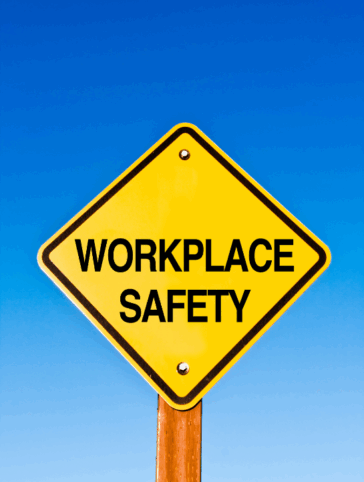Work can be stressful, but it shouldn’t be so stressful that it causes anxiety and burnout. To support employee wellbeing and boost productivity, employers need to manage workplace stress.
Good Stress vs. Bad Stress
According to Verywell Mind, stress comes in three varieties:
- Eustress is “good stress.” It’s the type of stress that can energize us when we’re doing something exciting.
- Acute stress is similar in that it’s a quick response to passing triggers, but it’s not always associated with positive events.
- Chronic stress occurs when someone faces repeated stressors. It takes a toll on people and can negatively impact health.
Berkley explains that short-lived stress can actually boost performance. Studies on rats have shown that stem cells proliferate into new nerve cells after brief stressful events, which results in improved mental performance.
In contrast, chronic stress tends to be harmful. The American Psychological Association explains that, although our bodies are able to handle stress in small doses, long-term or chronic stress can have serious effects on every system in the body, especially the musculoskeletal, respiratory, cardiovascular, endocrine, gastrointestinal, nervous, and reproductive systems. The Mayo Clinic says chronic stress impacts both the mind and body and can increase the risk of headaches, muscle tension, heart disease, sleep problems, anxiety, depression, problems with memory, and focus.
Reducing Chronic Stress at Work
If employees are temporarily stressed because they’re delivering a high-stakes presentation or launching a new product, that’s not necessarily a bad thing. In fact, the previously cited research suggests it could even help employees succeed. However, if workers are chronically stressed, their performance and wellbeing may suffer.
Employers can take the following steps to reduce chronic stress.
- Support a work–life balance. The Mayo Clinic says heavy workloads, long hours, and a lack of work–life balance are some of the risk factors for job burnout. This can lead to excessive stress, fatigue, high blood pressure, and other negative effects.
- Distribute workloads fairly. Part of maintaining a reasonable workload requires ensuring that all workers are doing their share – not more, not less. Harvard Business Review notes that managers need to make sure they divide work fairly. Although it may be easier to give more work to employees who always finish on time and never complain, experts warn that overworking high performers can lead to resentment and eventually drive them away.
- Rein in crunch time. In certain industries, “crunch time” is normal before a big product launch. During crunch time, employees must work longer hours and take on heavier workloads. According to research published in New Media & Society, long periods of extreme overtime are common in the video game industry. This can lead to fatigue, diminished mental health, family tension, and an overtime culture. Ultimately, this results in burnout and causes problems with retention.
- Acknowledge hard work. The American Psychological Association found that 93% of employees who feel valued are motivated to do their best work. Among workers who do not feel valued, only 33% report feeling motivated to do their best work. Entrepreneur has a list of five ways employers can make their workers feel valued, including recognizing birthdays with a gift (not just a card) and having bosses spend time with their teams.
- Set clear expectations. Not knowing what their employers expect of them can be stressful for workers. In fact, the American Psychological Association says 35% of stressed workers cite unclear job expectations as a reason for their stress. Establishing clear goals can help workers feel more confident in their positions.
- Encourage healthy breaks. Everyone needs time to recharge. Michigan State University says taking breaks throughout the workday can lead to benefits like reduced decision fatigue and increased creativity. However, workers often skip breaks, which can increase stress and burnout. Likewise, employees sometimes need longer breaks. The University of South Florida says when employees don’t use their paid time off, they may suffer from burnout, reduced productivity, declining metal health, negative attitudes, dissatisfaction, and even a greater risk of stroke and heart attack.
- Provide stress-busting perks. The Mayo Clinic’s list of stress relievers includes getting enough sleep and meditation. Employers can provide subscriptions to meditation, mindfulness, sleep, and other stress-busting apps. They have many options, including Calm Business and Headspace for Work.
Managing workplace stress is a critical part of supporting physical and mental wellbeing among your workers.
Tangram offers niche-focused workers’ compensation program to helps organizations manage workplace safety and reduce claims. With training programs on back injury prevention, HR and supervisory training, driver safety, and more, help you create a healthier and more productive workplace. Learn more.




